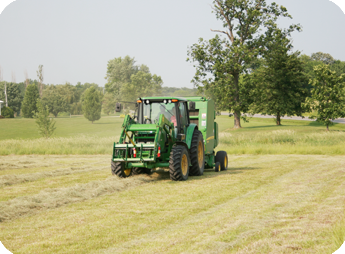
The Process of Organic Certification
When considering the term “certified organic” it is important to understand that this is a legal description. It is also important to understand that the term “organic” has many connotations associated with it, such as: sustainability and biodiversity. While these ideas were at the root of the organic foods movement, the current “organic” only addresses the issues of amendments used for farming. It does not address methods of farming that are harmful or beneficial to our environment and ecosystem.
In terms of agriculture and the growing of food, organic is a term that specifies the types of amendments that can be applied to an agricultural field. Amendments are substances that farmers put into their fields to grow things. The following is a basic list of all the amendments used in agriculture:

- Seeds
- Transplants (seeds grown in a greenhouse then transplanted into fields)
- Water
- Fertilizers
- Herbicides (items used to control weeds)
- Pesticides (items used to control bugs and pests)
- Fungicides (items used to control fungi)
The basic definition of an organic amendment is that it can be found naturally in the environment. Items that are naturally found in the environment and are chemically altered from their original form are not considered organic. Sulfur is a good example, it is an item that is naturally mined and is permitted for use as a fungicide in organic agriculture. However if sulfur is burned (chemically altering it), the result is sulfuric acid, which is not permitted in organic agriculture - but it is used in conventional agriculture to change the pH of irrigation water.
Fertilizers are a major amendment used in farming. Conventional farmers use synthetic fertilizers, which are chemicals like urea (form of nitrogen) which have been chemically produced from petroleum in factories. Items that organic farmers can use are limited to items that are naturally found in our environment like: animal manures, worm castings, seaweed, bat guano, blood meal, fish meal, feather meal and compost.
GM (genetically modified) seeds and seeds that are treated with chemicals are not permitted in organic agriculture. There are no powerful herbicides or pesticides available for organic use but the chemicals used in conventional agriculture are very effective for controlling pests and weeds.
In order for a crop to be certified organic it must be grown on a piece of land that has not had any non-organic materials applied to it for the past three years. Land that has started the process of becoming certified organic (has started only using organic materials) is considered to be transitional or in transition. The crops that are produced on it during this period of time are not certified organic. These crops will not be certified organic until three years have passed since the date of the last prohibited material was applied to the field.

The USDA has created a set of standard that are referred to as the National Organic Program or N.O.P. This is the set of standards that define USDA Organic, making a national standard for organic. A board of appointed officials decides these standards. The USDA does not do the annual inspections; third party inspectors do these.
Once per year every certified organic farm receives an inspection. A third party certifier who has been accredited by the USDA completes these inspections. The third party certifier comes to the farm annually and drives around to look at every field. The majority of the inspection is spent in the office where farmers provide documentation of all the amendments that were purchased and used on the farm. These inspectors are working to insure that the farms are following all the rules required by the National Organic Program.
While the certification process does force organic farms to keep good records it does not prevent the use of non-organic substances on organic products. The certified organic process also permits farms to produce the same products both organically and non-organically.
There is an economy of scale that is required in the business of growing fruits and vegetables. Our farm uses large tractors, hybrid seeds, and modern irrigation equipment – like most farms. Our farm also practices a healthy crop rotation, harbors a complete ecosystem around all of our fields, uses water that wasn’t transferred from hundreds of miles away, takes an individual interest in our customers, selects varieties of produce that taste good and we play an active role in our local community.
